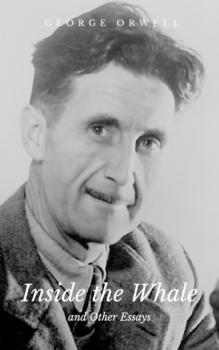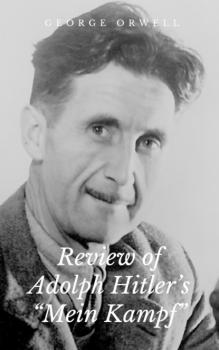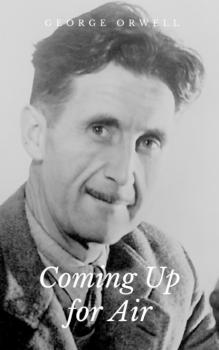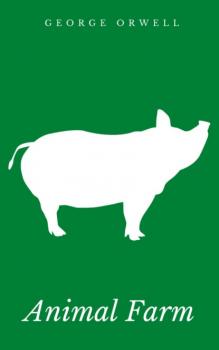ТОП просматриваемых книг сайта:
George Orwell
Список книг автора George OrwellАннотация
Ein Mann, eine Frau, die Partei, die Angst, der Hass; ständiger Mangel, ständiger Krieg, ständige Kontrolle, immer und überall. Verklemmte Sexualität wird gefördert, Prostitution geduldet, Liebe aber mit dem Tod bestraft. Die in Dummheit gehaltene Masse ist alles, der einzelne Mensch – nichts; weniger als nichts. Es wird viel geredet, doch kaum etwas gesagt, schon gar nicht die Wahrheit. Eine solche Welt erscheint uns auf den ersten Blick fremd und unvorstellbar. Doch vielleicht sind auch wir nur noch einige Schritte davon entfernt, genauso zu enden wie Winston Smith im Jahr 1984, denn die heute vorhandenen Möglichkeiten der Überwachung übertreffen seit langem bereits all das, was sich George Orwell vorstellte, als er sein bekanntestes Werk vor mehr als siebzig Jahren schrieb. Allerdings wusste er damals etwas weitaus besser als wir heute: Der Mensch ist klein. Und sterblich. Und vor allem feige. Und der Geist nahezu beliebig formbar. Und es bedarf manchmal nur des am Anfang vielleicht sogar gut gemeinten Versuchs, die Welt zu retten; sie besser zu machen, aus welcher Überzeugung heraus auch immer, und schon nimmt das Unheil seinen Lauf, bis die einmal begonnene Unterdrückung aller abweichenden Meinungen zum alles und jeden beherrschenden Dauerzustand der Gesellschaft wird. Wer sich ernsthaft mit der Frage beschäftigen will, ob und inwieweit der Einzelne ein Recht darauf hat, unüberwacht und dabei von staatlicher Einmischung frei zu bleiben, kommt an diesem Buch nach wie vor nicht vorbei, dessen immer noch grausam beklemmende Aktualität weniger in der Kraft einer längst von den Tatsachen überholten Prophezeiung liegt, sondern vielmehr in der schonungslosen und immer noch und immer wieder notwendigen Erzählung der alten Wahrheit, dass des Menschen schlimmster Wolf immer noch und immer wieder der Mensch war und ist und auch stets bleiben wird. Wem gehören denn die paar Kubikzentimeter in deinem Schädel? Dir allein? Bist du sicher? BIG BROTHER IS WATCHING YOU…
Аннотация
mehrbuch-Weltliteratur! eBooks, die nie in Vergessenheit geraten sollten.
Erzählt wird der traurige Verlauf einer Revolution in Form einer Fabel: Bald nachdem die Tiere ihren Herrn vom Hof vertrieben haben, übernehmen die Schweine die Herrschaft. Mittels Propaganda und Terror zerstören sie systematisch alle Errungenschaften der Revolution und stellen das alte System aus Herrschertum und Knechtschaft wieder her.
Erzählt wird der traurige Verlauf einer Revolution in Form einer Fabel: Bald nachdem die Tiere ihren Herrn vom Hof vertrieben haben, übernehmen die Schweine die Herrschaft. Mittels Propaganda und Terror zerstören sie systematisch alle Errungenschaften der Revolution und stellen das alte System aus Herrschertum und Knechtschaft wieder her.
Аннотация
"Inside the Whale and Other Essays" is a collection of 9 essays by George Orwell.
Eric Arthur Blair (25 June 1903 – 21 January 1950), known by his pen name George Orwell, was an English novelist, essayist, journalist and critic. His work is characterised by lucid prose, biting social criticism, opposition to totalitarianism, and outspoken support of democratic socialism.
Included in this collection: – Inside the Whale – Down the Mine – England Your England – Shooting an Elephant – Lear, Tolstoy and the Fool – Politics vs Literature: An Examination of Gulliver's Travels – Politics and the English Language – The Prevention of Literature – Boys' Weeklies
Eric Arthur Blair (25 June 1903 – 21 January 1950), known by his pen name George Orwell, was an English novelist, essayist, journalist and critic. His work is characterised by lucid prose, biting social criticism, opposition to totalitarianism, and outspoken support of democratic socialism.
Included in this collection: – Inside the Whale – Down the Mine – England Your England – Shooting an Elephant – Lear, Tolstoy and the Fool – Politics vs Literature: An Examination of Gulliver's Travels – Politics and the English Language – The Prevention of Literature – Boys' Weeklies
Аннотация
"Review of Adolph Hitler's 'Mein Kampf'" is an essay of George Orwell.
"Mein Kampf" («My Struggle» or «My Fight») is a 1925 autobiographical manifesto by Nazi Party leader Adolf Hitler. The work describes the process by which Hitler became antisemitic and outlines his political ideology and future plans for Germany. Volume 1 of «Mein Kampf» was published in 1925 and Volume 2 in 1926. The book was edited first by Emil Maurice, then by Hitler's deputy Rudolf Hess.
"Mein Kampf" («My Struggle» or «My Fight») is a 1925 autobiographical manifesto by Nazi Party leader Adolf Hitler. The work describes the process by which Hitler became antisemitic and outlines his political ideology and future plans for Germany. Volume 1 of «Mein Kampf» was published in 1925 and Volume 2 in 1926. The book was edited first by Emil Maurice, then by Hitler's deputy Rudolf Hess.
Аннотация
"Burmese Days" is the first novel by English writer George Orwell, published in 1934. Set in British Burma during the waning days of Empire, when Burma was ruled from Delhi as part of British India, it is «a portrait of the dark side of the British Raj». At the centre of the novel is John Flory, «the lone and lacking individual trapped within a bigger system that is undermining the better side of human nature». The novel describes «both indigenous corruption and imperial bigotry» in a society where, «after all, natives were natives—interesting, no doubt, but finally…an inferior people».
"Burmese Days" was first published «further afield», in the United States, because of concerns that it might be potentially libelous; that the real provincial town of Katha had been described too realistically; and that some of its fictional characters were based too closely on identifiable people. A British edition, with altered names, appeared a year later. Nonetheless, Orwell's harsh portrayal of colonial society was felt by «some old Burma hands» to have «rather let the side down». In a letter from 1946, Orwell wrote, «I dare say it's unfair in some ways and inaccurate in some details, but much of it is simply reporting what I have seen».
"Burmese Days" was first published «further afield», in the United States, because of concerns that it might be potentially libelous; that the real provincial town of Katha had been described too realistically; and that some of its fictional characters were based too closely on identifiable people. A British edition, with altered names, appeared a year later. Nonetheless, Orwell's harsh portrayal of colonial society was felt by «some old Burma hands» to have «rather let the side down». In a letter from 1946, Orwell wrote, «I dare say it's unfair in some ways and inaccurate in some details, but much of it is simply reporting what I have seen».
Аннотация
"Coming Up for Air" is the seventh book by English writer George Orwell, published in June 1939 by Victor Gollancz. It was written between 1938 and 1939 while Orwell spent time recuperating from illness in French Morocco, mainly in Marrakesh. He delivered the completed manuscript to Victor Gollancz upon his return to London in March 1939. The story follows George Bowling, a 45-year old husband, father, and insurance salesman, who foresees World War II and attempts to recapture idyllic childhood innocence and escape his dreary life by returning to Lower Binfield, his birthplace. The novel is comical and pessimistic, with its view that speculative builders, commercialism, and capitalism are killing the best of rural England and the existence of new, external threats.
Аннотация
"A Clergyman's Daughter" is a 1935 novel by English author George Orwell. It tells the story of Dorothy Hare, the clergyman's daughter of the title, whose life is turned upside down when she suffers an attack of amnesia. It is Orwell's most formally experimental novel, featuring a chapter written entirely in dramatic form, but he was never satisfied with it and he left instructions that after his death it was not to be reprinted. Despite these instructions, Orwell did consent that to cheap editions «of any book which may bring in a few pounds for my heirs» following his death.
Аннотация
"Homage to Catalonia" is George Orwell's personal account of his experiences and observations fighting for the POUM militia of the Republican army during the Spanish Civil War. The war was one of the defining events of his political outlook and a significant part of what led him to write in 1946, «Every line of serious work that I have written since 1936 has been written, directly or indirectly, against totalitarianism and for Democratic Socialism, as I understand it».
The first edition was published in the United Kingdom in 1938. The book was not published in the United States until February 1952, when it appeared with an influential preface by Lionel Trilling. The only translation published in Orwell's lifetime was into Italian, in December 1948. A French translation by Yvonne Davet—with whom Orwell corresponded, commenting on her translation and providing explanatory notes—in 1938–39, was not published until five years after Orwell's death.
The first edition was published in the United Kingdom in 1938. The book was not published in the United States until February 1952, when it appeared with an influential preface by Lionel Trilling. The only translation published in Orwell's lifetime was into Italian, in December 1948. A French translation by Yvonne Davet—with whom Orwell corresponded, commenting on her translation and providing explanatory notes—in 1938–39, was not published until five years after Orwell's death.
Аннотация
"Keep the Aspidistra Flying", first published in 1936, is a socially critical novel by George Orwell. It is set in 1930s London. The main theme is Gordon Comstock's romantic ambition to defy worship of the money-god and status, and the dismal life that results. Orwell wrote the book in 1934 and 1935, when he was living at various locations near Hampstead in London, and drew on his experiences in these and the preceding few years. At the beginning of 1928 he lived in lodgings in Portobello Road from where he started his tramping expeditions, sleeping rough and roaming the poorer parts of London. At this time he wrote a fragment of a play in which the protagonist Stone needs money for a life-saving operation for his child. Stone would prefer to prostitute his wife rather than prostitute his artistic integrity by writing advertising copy.
Аннотация
"Animal Farm" is an allegorical novella by George Orwell, first published in England on 17 August 1945. The book tells the story of a group of farm animals who rebel against their human farmer, hoping to create a society where the animals can be equal, free, and happy. Ultimately, however, the rebellion is betrayed, and the farm ends up in a state as bad as it was before, under the dictatorship of a pig named Napoleon.
According to Orwell, the fable reflects events leading up to the Russian Revolution of 1917 and then on into the Stalinist era of the Soviet Union. Orwell, a democratic socialist, was a critic of Joseph Stalin and hostile to Moscow-directed Stalinism, an attitude that was critically shaped by his experiences during the Spanish Civil War. The Soviet Union had become a brutal dictatorship built upon a cult of personality and enforced by a reign of terror. In a letter to Yvonne Davet, Orwell described «Animal Farm» as a satirical tale against Stalin («un conte satirique contre Staline»), and in his essay «Why I Write» (1946), wrote that «Animal Farm» was the first book in which he tried, with full consciousness of what he was doing, «to fuse political purpose and artistic purpose into one whole».
The original title was «Animal Farm: A Fairy Story», but U.S. publishers dropped the subtitle when it was published in 1946, and only one of the translations during Orwell's lifetime kept it. Other titular variations include subtitles like «A Satire» and «A Contemporary Satire». Orwell suggested the title «Union des républiques socialistes animales» for the French translation, which abbreviates to URSA, the Latin word for bear, a symbol of Russia. It also played on the French name of the Soviet Union, «Union des républiques socialistes soviétiques».
According to Orwell, the fable reflects events leading up to the Russian Revolution of 1917 and then on into the Stalinist era of the Soviet Union. Orwell, a democratic socialist, was a critic of Joseph Stalin and hostile to Moscow-directed Stalinism, an attitude that was critically shaped by his experiences during the Spanish Civil War. The Soviet Union had become a brutal dictatorship built upon a cult of personality and enforced by a reign of terror. In a letter to Yvonne Davet, Orwell described «Animal Farm» as a satirical tale against Stalin («un conte satirique contre Staline»), and in his essay «Why I Write» (1946), wrote that «Animal Farm» was the first book in which he tried, with full consciousness of what he was doing, «to fuse political purpose and artistic purpose into one whole».
The original title was «Animal Farm: A Fairy Story», but U.S. publishers dropped the subtitle when it was published in 1946, and only one of the translations during Orwell's lifetime kept it. Other titular variations include subtitles like «A Satire» and «A Contemporary Satire». Orwell suggested the title «Union des républiques socialistes animales» for the French translation, which abbreviates to URSA, the Latin word for bear, a symbol of Russia. It also played on the French name of the Soviet Union, «Union des républiques socialistes soviétiques».










